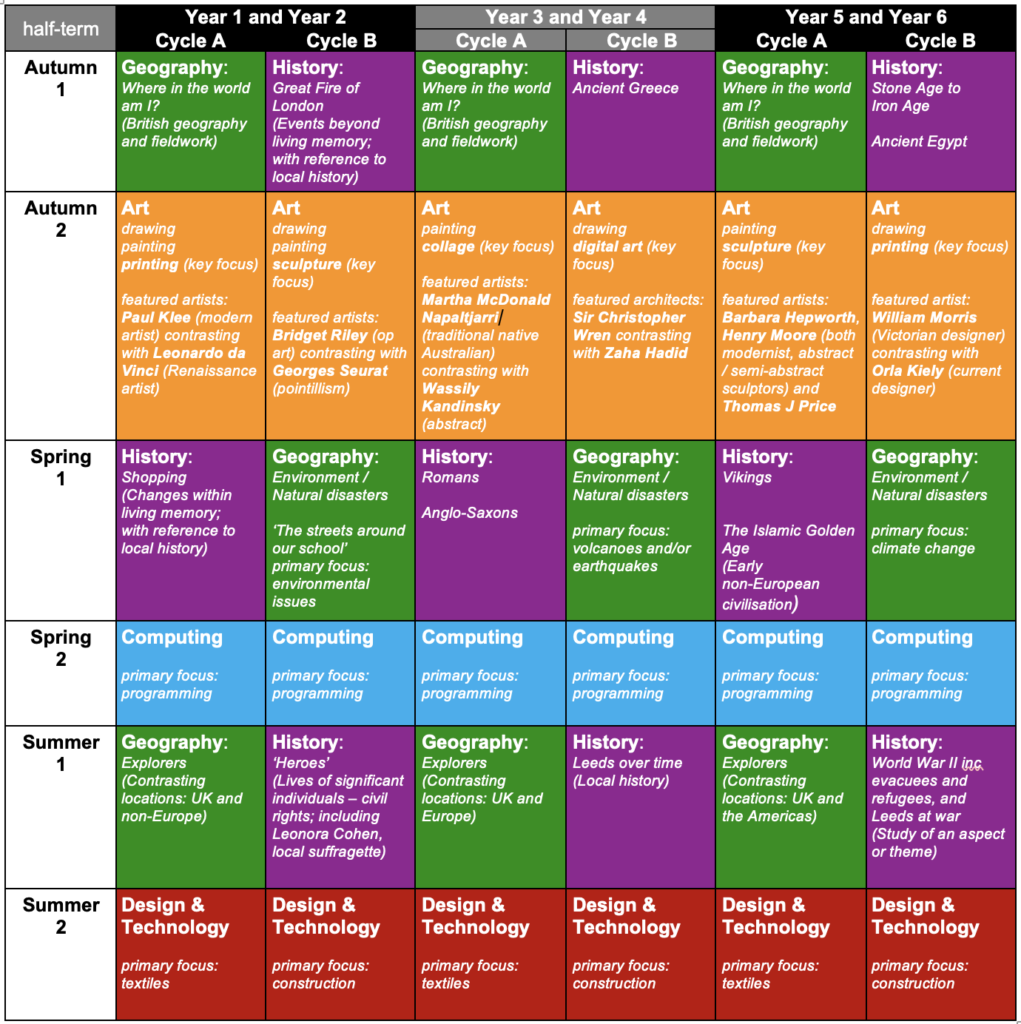A curriculum is a programme of content to be taught and learnt – a course of study for schools, colleges and universities. Schools in England follow the National Curriculum – a course of study decided by the Department for Education. (Private schools, academies and free schools are exempt: they don’t need to follow the requirements.) Learn more about the National Curriculum with this overview.
Our Curriculum Guides set out our curriculum intent and how we implement it. They describe our curriculum and age-related expectations.
- Reading Curriculum Guide
- Writing Curriculum Guide
- Maths Curriculum Guide
- Science Curriculum Guide
- Living and Learning Curriculum Guide – this relates to Personal, Social, Health and Economic Education and other ways we support pupils’ personal development
- Topic Curriculum Guide– this relates to Art, Computing, Design and Technology, Geography and History
- Art Curriculum Guide
- Latin Curriculum Guide
- Music Curriculum Guide
- PE Curriculum Guide
- Design and Technology: Cooking and Nutrition Guide – this includes recipes (please check in case your child has any allergies we should know about)
- For Phonics and Early Reading, check out our Phonics page
- For Reception, check out our Early Years page
To meet the requirements of the National Curriculum, all classes in Key Stage 1 and 2 follow some set, pre-planned topics. At Moortown Primary, we make sure children learn lots of additional skills, knowledge and understanding, too. For example, we offer a range of after-school clubs and opportunities to learn a musical instrument or try a new sport – these extra-curricular activities go beyond the statutory requirements. (Encourage your child to join in!) Current local / national or international events can also provide a great basis for learning.
The topic plan for each phase is set out below (this is an extract from our full Curriculum Statement). ‘Year A’ are ‘odd years’: 2019-20, 2021-22, 2023-24… and ‘Year B’ are ‘even’: 2020-21, 2022-23, 2024-25…

In our Curriculum Guides, we set out a comprehensive series of age-related expectations (AREs). These expectations are what teachers need to teach and what children are expected to learn, both for the core subjects (English, Maths and Science) and the foundation subjects. The expectations are based very closely on the National Curriculum.
Referring to end of key stage tests (commonly called the SATs), the following links are helpful. Find out more about the Key Stage 1 tests: watch this short video and/or read this booklet. Find out more about the Key Stage 2 test: watch this short video and/or read this booklet.
Our curriculum intent
Our curriculum topics
Our curriculum implementation
Our curriculum expectations
Supporting your child





